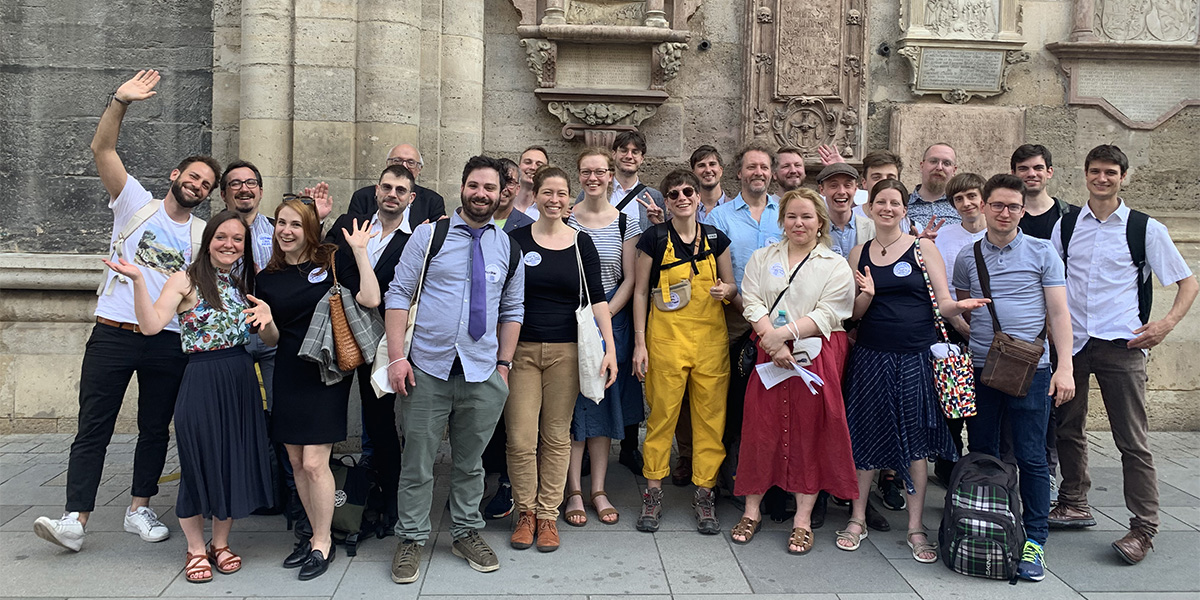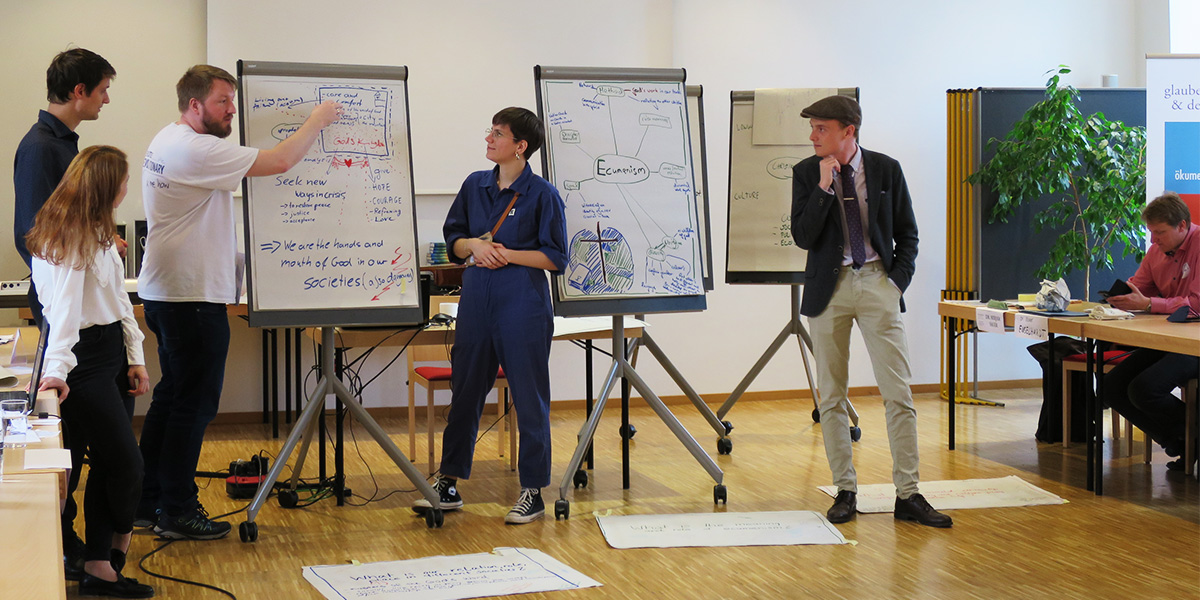
On 25 May 22, the third programme of the Austrian Broadcasting Corporation reported on the Young Theology Forum, which the Protestant Federation of Hesse hosted with its partners CPCE and ZEO: “Not least because of their national church structure, Protestant churches are usually also closely confronted with the respective political leadership of their country, not only with regard to their positioning in the Ukraine war…” Listen to the whole contribution in this recording in German language


